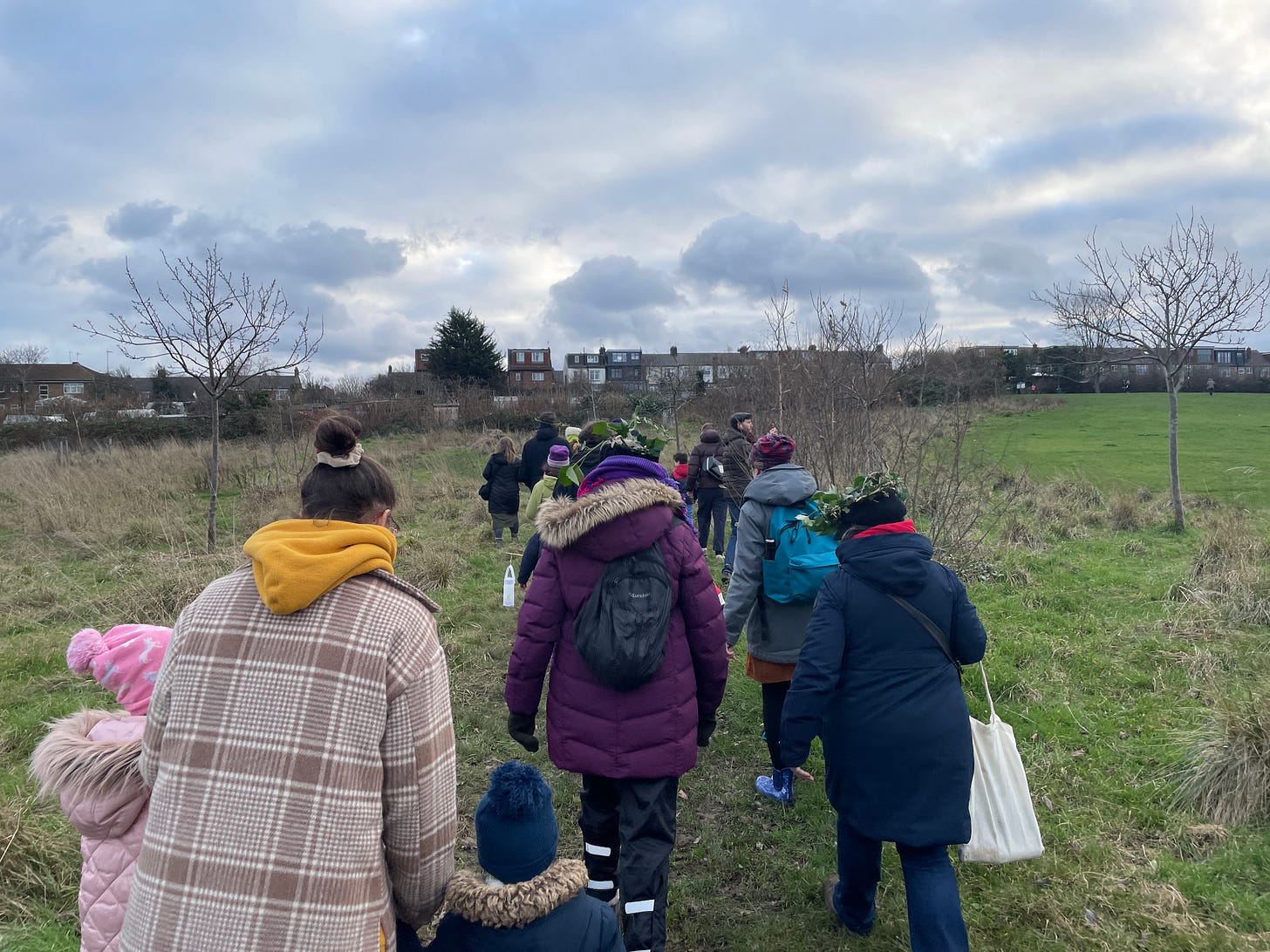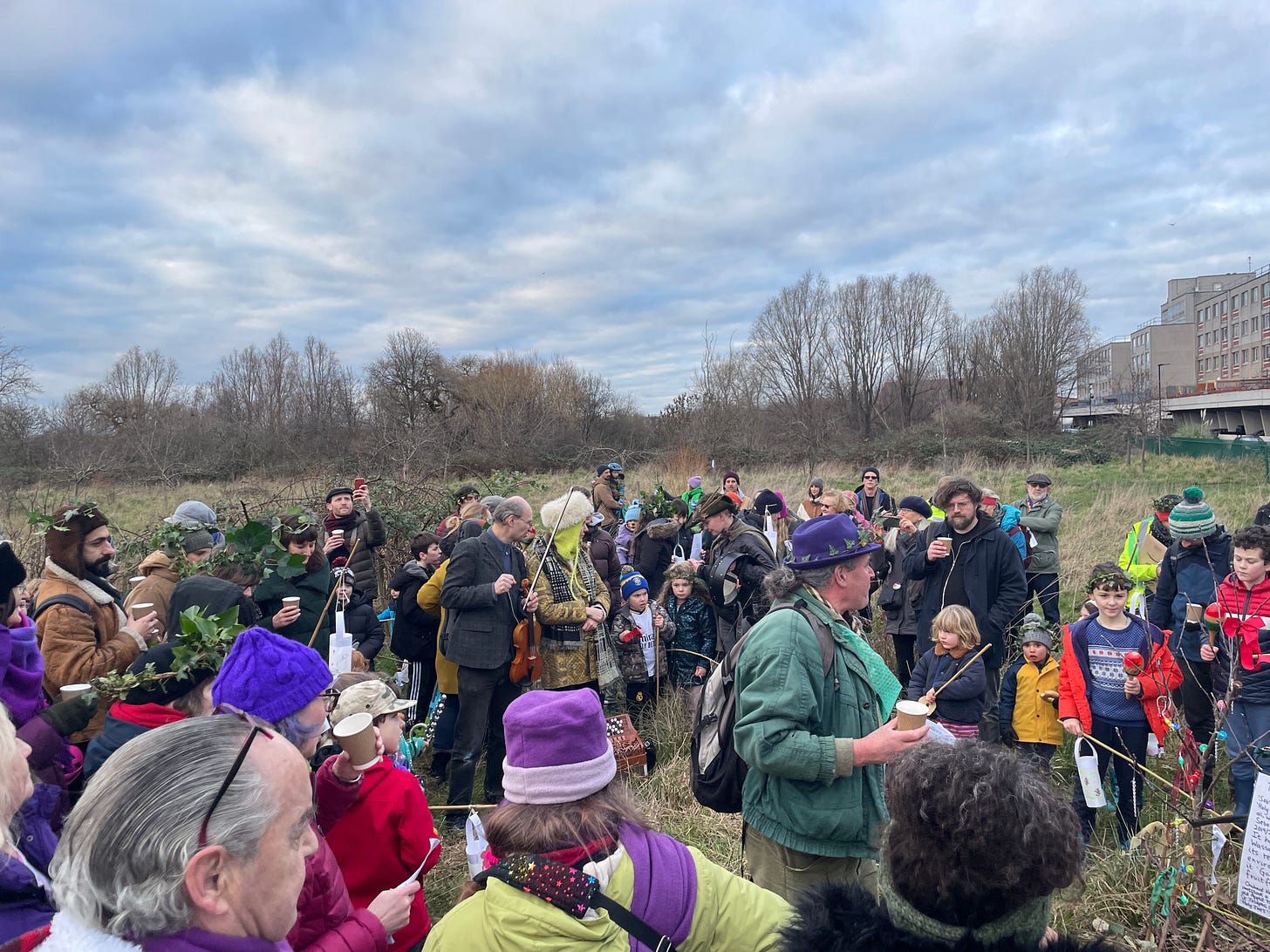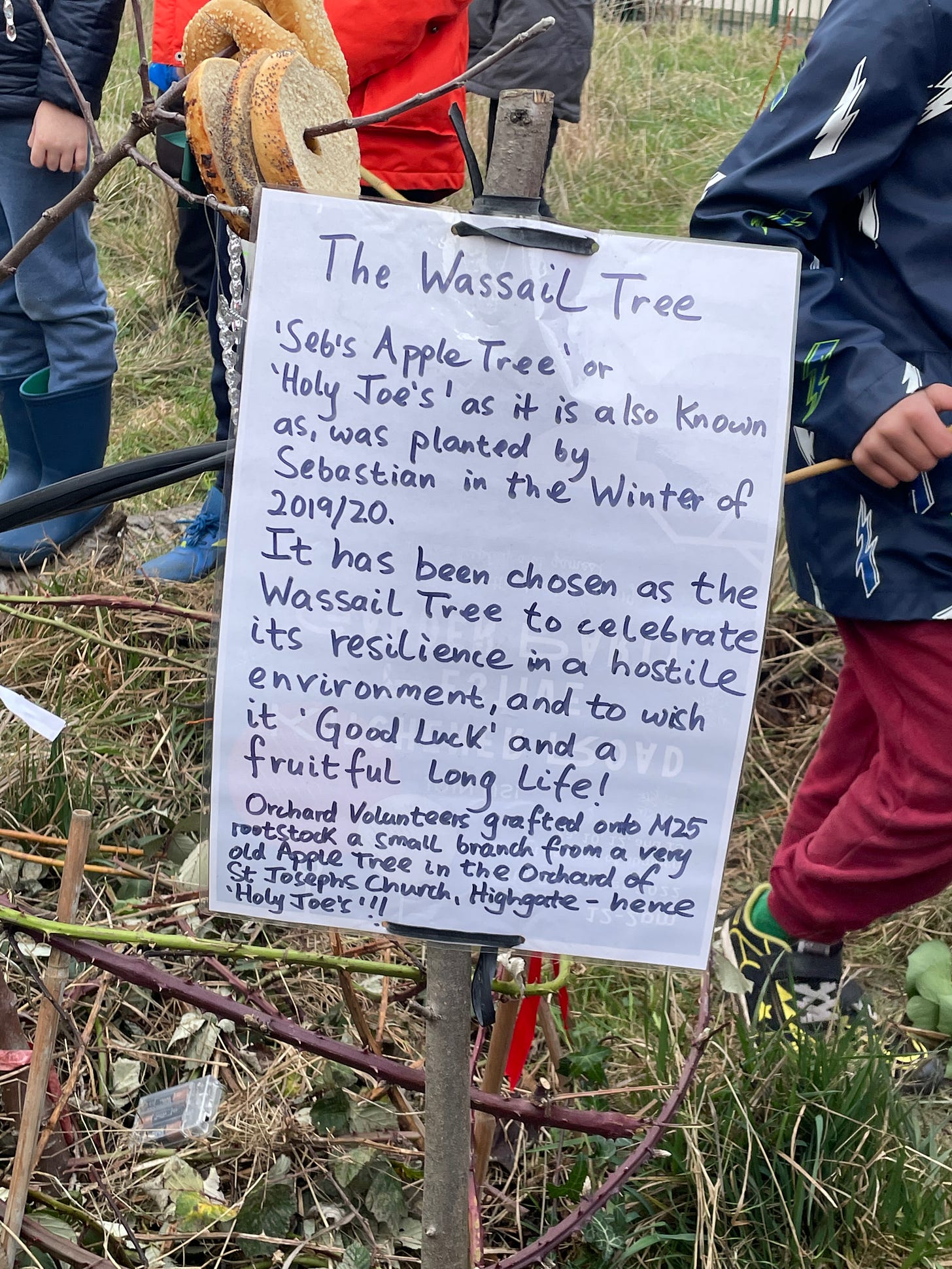Here we come a-wassailing
among the leaves so green.
“What the heck is wassailing?” I said when my partner asked if I wanted to come wassailing with her at the weekend. I’m sure you would ask the same thing in my shoes, unless you’re up on your knowledge of Anglo-Saxon celebrations, but fear not - I’ll fill you in.
We took the bus to the large recreation ground a few miles away, a mixture of playground, community centre, garden, woodland and orchard.
The locals were gathering and spirits were high, buoyed by children’s face painting and hat making activities and a jovial group of musicians. When a man with a hat and a booming voice asked the crowd if they were ready to wassail, I responded heartily with them, despite being none the wiser what wassailing was.
The merry musicians then led us across the rec to the orchard, where we toasted to the health of an apple tree with a cup of mulled cider, then sang songs while children decorated the tree with bread.
It might sound like a fever dream, but wassailing is actually a ritual here in England that dates way back to before Christianity had spread through the British Isles. Christianity even adopted much of the wassailing tradition, and many of the songs and customs evolved into what has now become modern-day Christmas carolling.
Wassailing, which in the Victorian era was a key part of the twelfth night of Christmas, is intended to be a blessing on the fruit trees to encourage a bountiful harvest, and has become one of the most enduring festive traditions. That said, it’s perhaps more commonly celebrated in apple-rich cider-making counties like Gloucestershire and Somerset on the other side of the country to where I grew up, which might be why I stared at my partner blankly when she suggested it.
But what a celebration it was. The rec was teeming with people coming together, dressed up, and singing. In that unassuming patch of greenery, surrounded by roads and blocks of flats and supermarkets full of plastic-wrapped fruit and vegetables from industrial mechanised farms, we blessed that humble apple tree, leafless and dormant in the wintery orchard.
The children sang wassailing songs with as much enthusiasm as the adults, and when the blessing was done we returned to the community centre for more mulled cider, music, and storytelling. Donations were collected enthusiastically to support the local migrant centre.
I felt a twang of disappointment that I had managed to go my entire life completely unaware of wassailing, and missed out on so much potential merrymaking. But I also found joy in knowing that a two thousand-year-old tradition is alive and well in London, and that in the dense, fume-filled, concrete jungle of modern life there is singing, and music, and a healthy, young apple tree.
Here’s to thee young apple tree,
Whence thou may’st bud and whence thou may’st blow,
And whence thou may’st bear apples enow.
Hats full, caps full, bushel, bushel sacks full,
And my pockets full too!
Hip hip hooray!
- The Apple Wassail






It seems especially wonderful to model for children a tradition of blessing living things in nature. Well done! And thank you for sharing this.
I love a good wassail. It's great these traditions keep going.